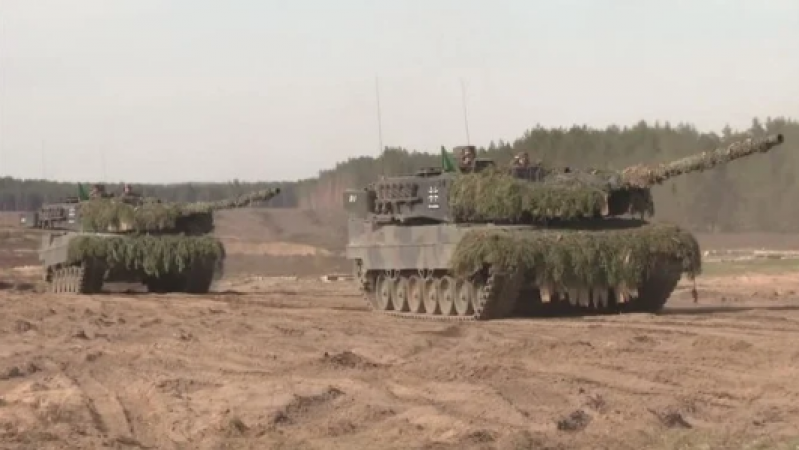
Berlin: Chancellor Olaf Scholz was due to announce on Wednesday that his government would approve the supply of German-made battle tanks to Ukraine after weeks of deliberations that saw growing impatience among Germany's allies.
After US officials announced that a preliminary deal had been made for the United States to send M1 Abrams tanks to Kyiv to help push back Russian forces stationed in the east, nearly a year after the war began, long The long awaited decision was made.
According to Scholz, any action to supply Ukraine with powerful Leopard 2 tanks would require close coordination with Germany's allies, especially the United States. Berlin hopes to spread the risk of any Russian response by persuading Washington to commit some of its own tanks.
Also Read: widespread opposition to the Danish government's plans to abolish holidays
Ahead of the official announcement, which was expected in an early afternoon speech to parliament, members of Scholz's three-party coalition government expressed their enthusiasm. German MP Katrin Göring-Eckardt, a prominent Green Party lawmaker, exclaimed, "The panther has been set free!"
The head of the parliamentary defense committee and a member of the Free Democratic Party, Marie-Agnes Strack-Zimmermann, hailed the news as "a relief to the abused and brave Ukraine".
The choice to give in to (other countries' requests) and supply Leopard 2 was a difficult one, but it had to be made," he said. Strack-Zimmermann was one of the most vocal advocates of a quick decision to disarm Ukraine.
Also Read: For an unexpected meeting with the king Netanyahu travels to Jordan
However, the action was criticized by two smaller opposition parties. The decision was labeled "irresponsible and dangerous" by Germany's far-right Alternative.
Tino Chorupalla, one of the group's co-leaders, said, "There is a risk of Germany being dragged directly into war as a result." The party, abbreviated as AfD, has cordial relations with Russia.
The leftist party, which has a long history with Moscow, issued a warning about a possible escalation of hostilities. According to the party's parliamentary leader, Dietmar Bartsch, "the supply of Leopard battle tanks, which ends up being another prohibition, potentially moves us closer to World War III than towards peace in Europe."
Recent polls indicate that German voters are divided on the concept. This week, Scholz came under pressure when Poland formally requested Germany's consent to send 2 Leopard tanks to Ukraine from Polish stocks. As part of a larger alliance, other European countries have also expressed willingness to give up their own battle tanks.
Also Read: Tsai Ing-wen: War with China 'not an option'
According to Der Spiegel, the weekly news in Germany, Berlin was initially able to approve the supply of a tank company with 14 vehicles. Ukraine's President Volodymyr Zelensky made clear late Tuesday that he expected to receive more tanks from allies in the West. "It is not a matter of five, ten or fifteen tanks. "It needs more," he said.